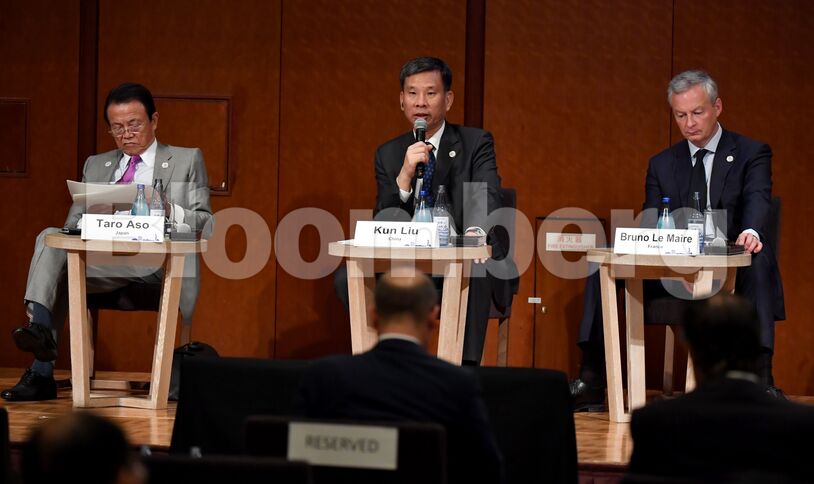U.S. Treasury Secretary Steven Mnuchin tweeted that he had a “candid” and “constructive” talk on trade issues with People’s Bank of China Governor Yi Gang. China’s Finance Minister Liu Kun described protectionism as a “crucial challenge” and called on all sides to defend the rules-based multilateral system.
With finance officials unable to meaningfully reset the trade narrative, markets will have to wait another few weeks for the next chance for a breakthrough, when Presidents Trump and Xi Jinping are expected to meet at the G-20 leaders summit in Osaka.

Read More: Main takeaways from the G-20 finance meetings
“We have to take a multilateral approach. Trade doesn’t work well with a bilateral approach,” Japan’s Finance Minister Taro Aso told reporters. If economic activity deteriorates, then “all possible policy tools should be mobilized,” Aso said.
It was a similar message from his counterpart in Germany.
“We all hope that the trade tensions will vanish,” German Finance Minister Olaf Scholz said in a Bloomberg Television interview. For now, “pending questions” on the U.S.-China trade negotiations are having a real impact on global development, and removal of that uncertainty would have a “big impact” on Germany’s economy, he said.
Canadian Finance Minister Bill Morneau found reasons to be upbeat on trade, but with qualifications. The lift of the U.S. tariff threat on Mexico helps push forward the joint U.S.-Mexico-Canada trade deal, as does the U.S. cancellation of steel and aluminum duties on Canada, he said in an interview with Bloomberg Television. Canada remains opposed to the use of tariffs as a global trade strategy, he said.
Morneau is also hopeful that a thawing in U.S.-China relations will help Canada to make amends in its own relationship with China. For now, Canada and China are in a “difficult moment,” marred by the Huawei dispute, imprisoned Canadians, and cancelled canola purchases, he said.
Policy Support
The greater uncertainty around the use of tariffs globally has helped nudge Barclays Plc to a call that the Federal Reserve will cut its benchmark interest rate in July.
“Tariffs need not go into effect to slow the economy down,” according to a research note Saturday — after the U.S. threat on Mexico was lifted — by the bank’s chief U.S. economist, Michael Gapen. “The perpetual threat of tariffs may be sufficient, even if worst-case outcomes are avoided.”
In the buildup to the meeting, the Fed’s Powell signaled a willingness to act if the economy needs it, European Central Bank Governor Mario Draghi vowed to support growth while the PBOC’s Yi said he has “tremendous” policy options to stoke demand. Australia, India and Chile all lowered interest rates in the past week.
There was progress made on other fronts.
Japan made some headway on measures to raise new taxes and boost transparency around surging levels of debt. There was also a recognition that more measures are needed to cope with aging populations, a push for more transparency around government borrowing, and steps toward a digital tax framework.
“The fact that the G-20 reached agreement on such sensitive issues — including the Principles for Debt Transparency — shows how effective a multilateral approach to global problems can be,” said Dylan Riddle, a spokesperson for the Institute of International Finance.




















 Become an Insider
Become an Insider